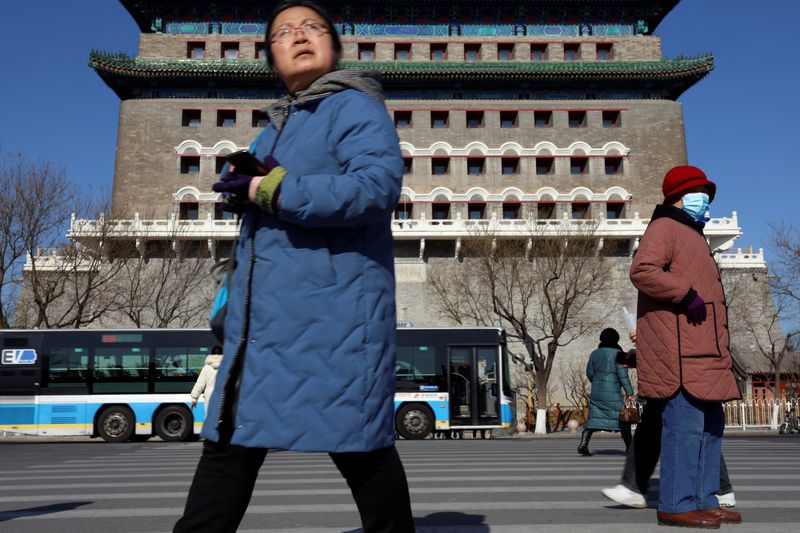Investing.com’s stocks of the week
BEIJING (Reuters) - China's tightening of rules for consumer finance companies is likely to force consolidation in the roughly $120 billion sector that provides high-interest loans for millions of people shut out of traditional banking.
The National Financial Regulatory Administration (NFRA) announced revamped and stricter rules for the sector on Monday, measures that are expected to drive China's consumer finance companies to seek deeper-pocketed investors or merge.
The tougher standards for the last line of credit for China's riskiest borrowers are the latest steps aimed at containing financial risks in the world's second-largest economy. Exuberance in some sectors, especially property, witnessed in prior years is taking a major toll now on China's household consumption, its middle-class wealth and confidence.
The rules, changed after a decade, require consumer lenders to have more than 1 billion yuan ($138.91 million) in registered capital - more than triple the previous minimum - and to secure a major investor holding a stake of at least 50% of its equity.
Of China's 31 consumer lenders, 10 fall short of the capital requirement, Reuters checks showed. And roughly half of all the companies do not have a major investor that would qualify them under that standard, according to Han Kun Law Offices, which compiles an annual report on the sector for the China Banking Association (CBA).
China's consumer finance companies provided the equivalent of $116 billion to more than 338 million borrowers, according to CBA's report for 2023. The companies had $123 billion in combined assets at end-2022.
Many borrowers are migrant workers who have moved to China's big cities, and blue-collar workers. Many are also younger than 35. They can struggle to provide proof of income and credit, shutting them out of bank loans when they need funds for travel, medical expenses, or the education of their children.
Interest rates on consumer loans are capped at 24% but some consumers have complained that hidden processing fees mean they have effectively paid more than anticipated. The amount of each loan is capped at 200,000 yuan ($27,781) by regulation.
GRACE PERIOD
The incoming standards are expected to trigger a restructuring of consumer financial companies, eliminating less competitive players and attracting larger financial and internet firms into the sector, analysts said.
"The tougher rules will see a wave of existing consumer finance companies seeking new capital injections and expansions," said one analyst at an industry association who asked not to be named because he was not authorised to speak to the media.
China's largest consumer lender, Chongqing Ant Consumer Finance Co, owned by Alibaba (NYSE:BABA) affiliate Ant Group, has a registered capital of 23 billion yuan.
Analysts and finance executives expect a grace period after the revised rules take effect next month of several months or even a year as NFRA readies the rules for implementation, analysts said.
In a question and answer statement published late on Monday, NFRA said that details on the timeline for firms to meet the new standards would be published later, without giving a specific time frame.
($1 = 7.1991 Chinese yuan renminbi)
